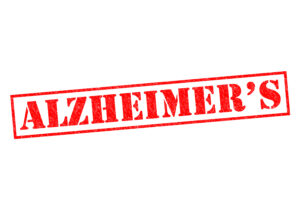
26 May Anger and Alzheimer’s Disease: Here’s What You Need to Know

Unfortunately, one of the symptoms that often comes along with Alzheimer’s disease is anger. If you are helping to care for a loved one with Alzheimer’s disease, their anger is something that you might have to encounter. There are certain causes of anger with this disease. There are also some ways that you can deescalate your loved one’s anger, as well.
Main Causes of Anger in Relation to Alzheimer’s Disease
If you are caring for someone with Alzheimer’s disease and you want to help them with their anger, one of the first things that you need to do is find out the cause of their anger. There could be a host of things that are causing your loved one to become angry. Some of the main causes of anger in relation to Alzheimer’s disease include the following:
- Chaotic or noisy environment
- Routine changes
- Being surprised or startled
- Getting too cold or too hot
- Having to go to the bathroom
- Feeling thirsty or hungry
- Being in discomfort or pain
- Loud noises
- Being tired or not getting enough sleep
- Being in an unfamiliar place or around unfamiliar people
- Feeling frustrated about not being able to communicate well
- Being afraid or confused
- Being in a crowded environment
These are all things that could be causing your elderly loved one to become angry. By figuring out the cause of your loved one’s anger, you and your loved one’s senior care providers can more easily help to deescalate the situation at hand.
Deescalating the Situation
After you have figured out the cause of your loved one’s anger, you can then start finding the appropriate solution to deescalate the situation. The first thing that you must do is keep yourself calm. If you aren’t calm, your loved one isn’t going to calm down either. Some of the other things that you could do to deescalate your loved one’s anger include the following:
- Validating your loved one’s feelings – You shouldn’t try rationalizing what is happening. Your loved one just wants to know that someone understands what they are going through. By validating your loved one’s feelings, this could be enough to calm them down, at least a bit. Talking in a soft voice when you are validating your loved one’s feelings can help a great deal, as well.
- Giving your loved one some space – Just like everyone else, those who have Alzheimer’s disease sometimes just need some time alone. They need some space to calm down. You should just make sure your loved one is an environment where they won’t harm themselves or anyone else.
- Playing soft, calming music – You might be able to deescalate your loved one’s anger by playing some soft and calming music. Research shows that music can help to soothe the minds of those who have Alzheimer’s disease. It might be helpful to already have a playlist that your loved one enjoys for when they get angry.
These are some of the things that you can do if your loved one gets angry.
Now that you know more about the causes of anger in relation to Alzheimer’s disease and what to do about it, you can better support your loved one when they get angry.
If you or an aging loved-one is considering Senior Care in Colbert, WA please contact the caring staff at Care To Stay Home – Spokane today at (509) 340-1359.
Sources


